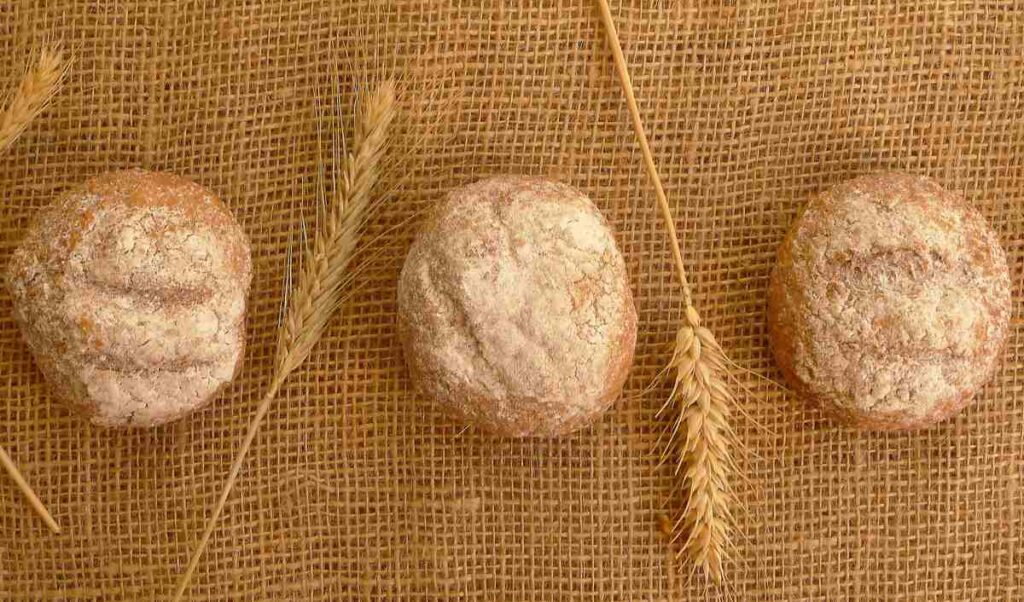Healthy, Science-Backed Foods That Can Help With Diabetes
It Can Be Beneficial To Drink Milk In The Morning
For a while, experts have discussed whether milk impacts diabetes. However, recent studies are showing a positive connection. A 2018 study published in the Journal of Dairy Science revealed that having milk with breakfast might benefit people with diabetes throughout the day. The protein in milk helps you feel full longer, helping to control blood sugar and curb appetite.

Researchers combined milk with a high-carbohydrate cereal and saw encouraging results. In 2016, scientists from Tel Aviv University found that dairy products manage blood sugar better than eggs and soy. So, go ahead and enjoy whole-wheat cereal!
A Few Berries Can Go A Long Way
Whether you love strawberries, blueberries, or raspberries, they all can help fight against diabetes. A study published in the journal Obesity by researchers from the Illinois Institute of Technology found that berries can improve insulin resistance. Specifically, people who consumed two cups of raspberries daily had lower blood sugar levels.

Even a small serving of berries can lower your risk of developing diabetes. According to a Chinese study, eating just 17 grams of berries led to a 5% decrease in the risk of type 2 diabetes. To give you an idea, this amount is roughly equivalent to thirteen blueberries, nine raspberries, two blackberries, or one large strawberry.
Peanut Butter Can Prevent Blood Sugar Spikes Later On
Natural peanut butter has a low glycemic index and is quite satisfying. Registered dietitian Erin Spitzberg suggests eating peanut butter because it “slows down digestion, helping you feel full for longer.” This slow digestion also helps prevent sudden spikes in blood sugar later in the morning.

In a 2018 pilot study, adults who had two tablespoons of peanut butter with white bread and apple juice showed a less dramatic increase in blood sugar levels. However, Spitzberg advises spreading peanut butter on your favorite whole-grain toast or mixing it into oatmeal for a healthier choice.
For Healthy Fats, Cook With Olive Oil
While olive oil is calorie-dense, it’s more effective at lowering cholesterol than many other fats. It’s packed with healthy fats that help manage type 2 diabetes symptoms. A study from Sapienza University in Rome in 2015 found that olive oil specifically reduces LDL, the harmful cholesterol.

The credit for these benefits goes to olive oil’s antioxidants, known as polyphenols. As reported in the journal Cardiovascular Diabetology, these antioxidants reduce inflammation and safeguard your blood cells. This suggests that olive oil might also help in controlling blood pressure.
What About Whole Grains?
Even though some diets for people with diabetes advise against eating bread, you don’t need to avoid all grains. The American Diabetes Association suggests including whole grains in your diet if you have diabetes. Researchers from Chalmers University have stated that there is no evidence showing that whole grains have negative effects on diabetes.

In a study conducted in 2018, the same researchers discovered that eating whole wheat can actually lower the risk of developing diabetes. People who consumed 50 grams of whole wheat daily, equivalent to a bowl of cereal or a slice of bread, had a 22% to 34% reduced risk of getting diabetes. So, there’s no need to worry about enjoying whole-grain bread.
Don’t Worry About Sweet Potatoes
Sweet potatoes are unique because they can actually help improve symptoms in people with diabetes. Leah Kaufman, a registered dietitian, explains that sweet potatoes have a lower glycemic index (GI) compared to white potatoes. This means that eating a medium-sized sweet potato can help keep your blood sugar levels steady. Plus, they’re packed with beneficial nutrients like vitamin C, iron, and fiber that are good for managing diabetes.

However, the way you cook sweet potatoes can affect their GI. According to a 2011 study published in the Journal of Nutrition and Metabolism, boiling sweet potatoes results in the lowest GI. On the other hand, roasting sweet potatoes increases their GI more than any other cooking method, followed closely by frying.
Eggs Can Be Good For Cholesterol
For a long time, people thought eggs were bad because they might raise cholesterol levels. But actually, eggs can lower LDL cholesterol (the unhealthy kind) and increase HDL cholesterol (the good kind for your heart). A study published in The British Journal of Nutrition found that this change in cholesterol can help stabilize blood pressure and blood sugar in people with type 2 diabetes.

In a study from 2011, participants who ate two eggs a day experienced these benefits. Eggs are rich in protein, which helps you feel full and stabilizes your blood sugar levels. When eating eggs, it’s best to include the yolk because that’s where most of the egg’s nutrients are found.
Here’s Another Reason To Enjoy Garlic
If you’re a garlic fan, you’re in for some good news. Many studies have shown that garlic can help control blood sugar, lower cholesterol levels, and reduce inflammation. For example, a study conducted in Pakistan in 2011 found that people with type 2 diabetes who consumed 900 mg of garlic daily for 24 weeks showed improvements in cholesterol levels, blood sugar control, and triglyceride levels.

Furthermore, a report from the Journal of Ayub Medical College states that garlic can lower LDL cholesterol (the “bad” cholesterol) and increase HDL cholesterol (the “good” cholesterol). While eating a small amount of garlic won’t drastically improve your health, it’s still a good reason to include garlic in your diet.
A Handful Of Nuts May Help Prevent Heart Disease
Eating a small portion of nuts daily could be good for people with diabetes. A study published in Circulation in 2019 found that eating nuts can reduce the risk of heart disease in people with diabetes. Those with type 2 diabetes who ate one-ounce servings of nuts five times a week were 17% less likely to develop cardiovascular disease.

The study highlighted that walnuts, pistachios, and almonds were the most beneficial nuts. However, other nuts like cashews and peanuts also help improve blood pressure and cholesterol levels in people with type 2 diabetes, as reported in the Journal of Nutrition.
A Little Bit Of Cinnamon Can Make A Big Difference
Several studies have shown that cinnamon might help with diabetic symptoms. For instance, a 2012 study published in Nutrition Research discovered that cinnamon extract could improve blood sugar levels in Chinese patients with type 2 diabetes. Similarly, The Journal of Diabetes Research reported that cinnamon tea had the same positive effect.

Hemoglobin A1c levels are used to determine chronic diabetes, and cinnamon can directly influence these levels. A study conducted in 2019 found that people with type 2 diabetes who consumed one gram of cinnamon daily for three months had lower A1c levels. It’s important to note that you don’t need a large amount to see benefits. Stick to consuming less than one teaspoon of cinnamon per day to avoid potential health issues.
The Scoop On Beans
If you have diabetes, the American Diabetes Association recommends eating beans a few times a week. A study in 2012 found that people who included more beans in their diet had better control over their blood sugar levels. This is because beans have a low glycemic index and are digested slowly, helping to keep blood sugar levels stable for longer periods.

Additionally, beans are rich in fiber. Mayo Clinic states that fiber slows down the absorption of sugar, which can help improve blood glucose levels. A diet high in fiber can also reduce the risk of developing type 2 diabetes for those who are at high risk. So, including more beans in your diet is an easy way to get more fiber and potentially improve your blood sugar control.
Don’t Forget Citrus Fruits
The American Diabetes Association considers citrus fruits to be excellent choices for people with diabetes. Even though lemons and oranges have acidic properties, they can still be beneficial for diabetes management. Harvard Health Publishing suggests that consuming citrus juice along with high glycemic index foods can reduce the overall glycemic index. The acidity in citrus fruits helps convert starches into sugars more gradually, leading to a milder impact on blood sugar levels.

Furthermore, citrus fruits can help prevent insulin resistance. A study from 2006 published in the Journal of Medicinal Food found that grapefruit can help alleviate insulin resistance. Participants who consumed more grapefruit also experienced weight loss. Similarly, incorporating oranges, mandarins, limes, or lemons into your diet can contribute to better health.
Tomatoes, Raw Or Cooked, Can Improve Blood Sugar
Eating tomatoes, whether raw or cooked, can help manage diabetes symptoms. In a study conducted in 2011, participants who consumed 200 grams (less than a cup) of tomatoes daily saw improvements in their blood sugar levels. Additionally, diabetic patients experienced better blood pressure readings after incorporating tomatoes into their daily diet.

Tomatoes are fruits that are low in carbohydrates and have a low glycemic index (GI). They are rich in vitamin C, beta-carotene, potassium, and lycopene, which have been shown to have anti-diabetic and potentially heart-protective properties. This is why the American Diabetes Association recommends including tomatoes in your diet.
Why Nutritionists Recommend Greek Yogurt
Greek yogurt stands out from other yogurts because it has low carbs but high protein. Tami Ross, a diabetes expert and registered dietitian, suggests Greek yogurt to her patients. She points out that since it’s low on the glycemic index, it’s a great choice for breakfast to help maintain stable blood sugar levels throughout the day.

A study published in BMC Medicine in 2014 found that eating yogurt can lower the risk of developing type 2 diabetes. After analyzing three extensive studies, the researchers discovered that people who consume a cup of yogurt daily have an 18% lower chance of getting diabetes. So, it seems yogurt is really beneficial.
